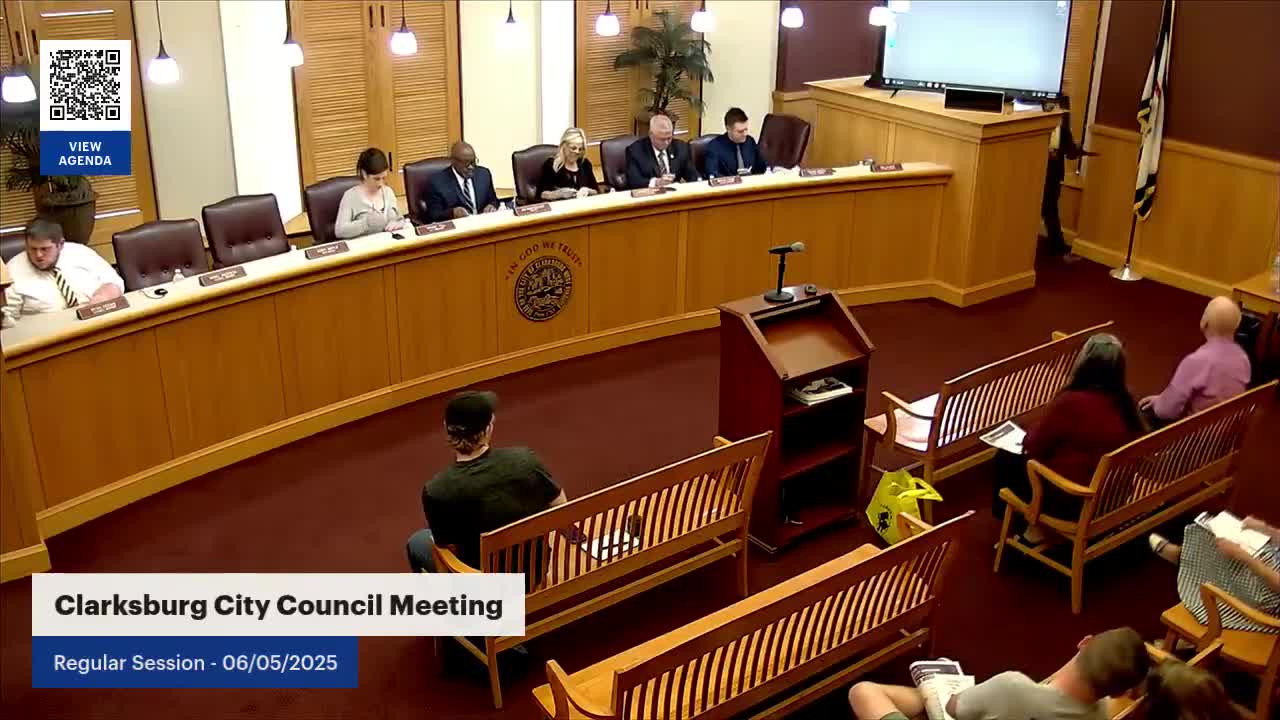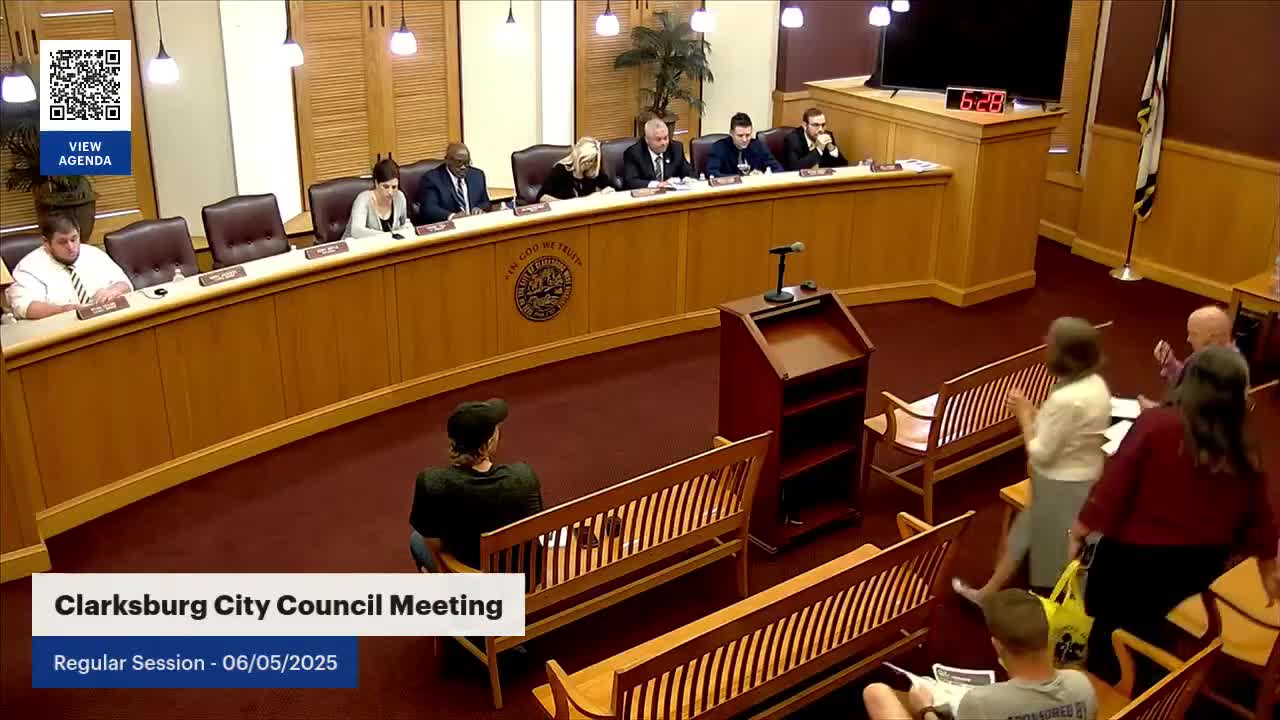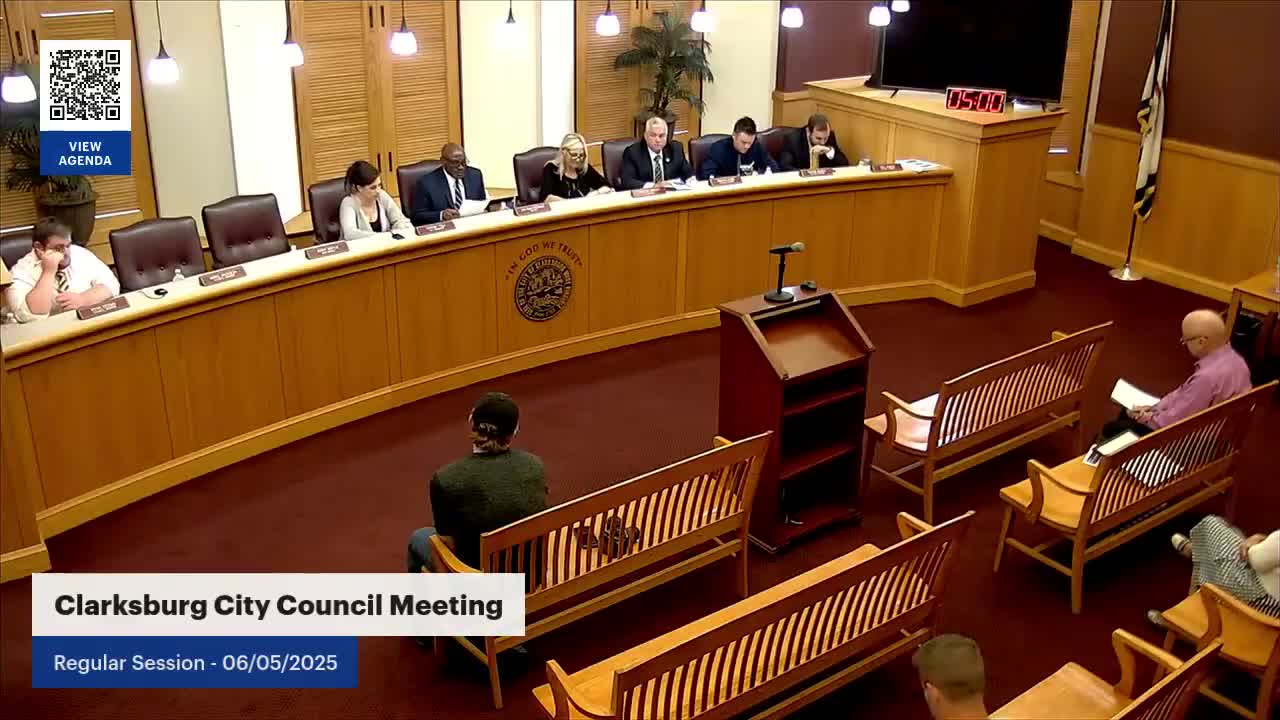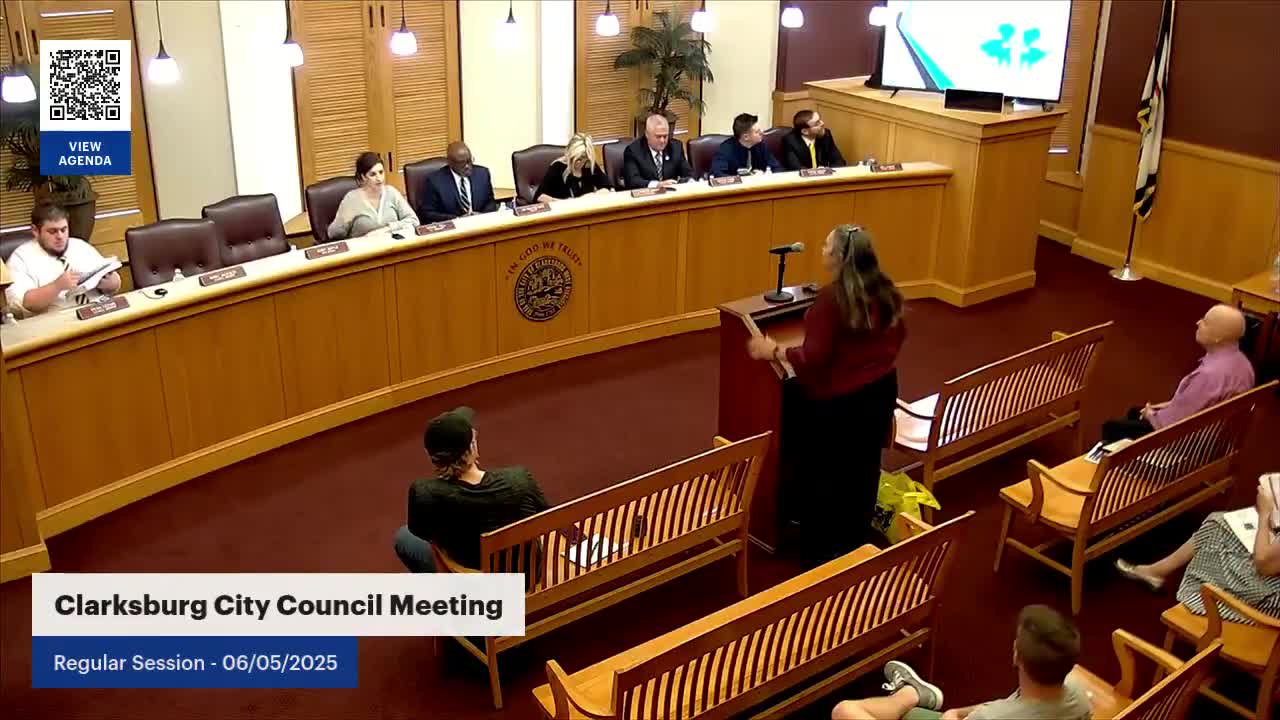Article not found
This article is no longer available. But don't worry—we've gathered other articles that discuss the same topic.

Clarksburg proclaims June 2025 Alzheimer's and Brain Awareness Month, invites public to October Walk to End Alzheimer’s

Daughters of the American Revolution thank Clarksburg for upkeep of historic West Main Street cemetery

Clarksburg council approves budget revision amid questions about revenues and line items

